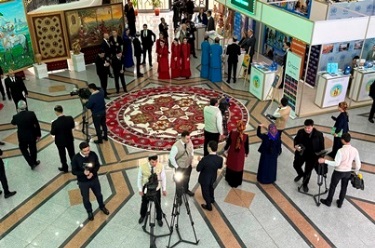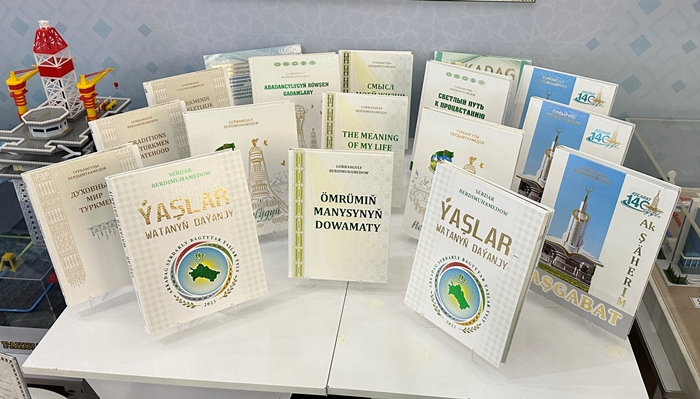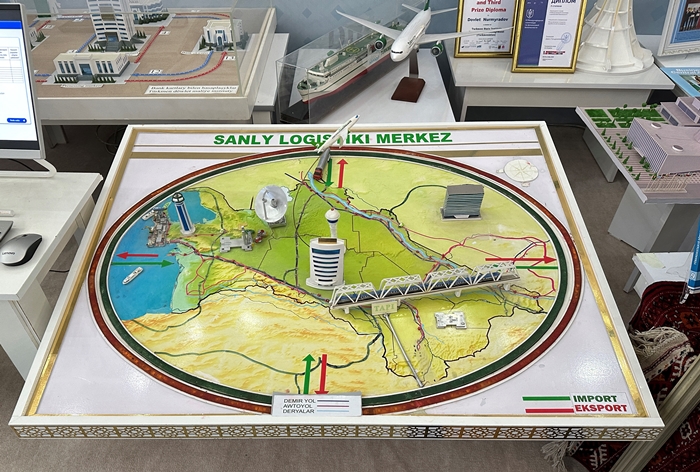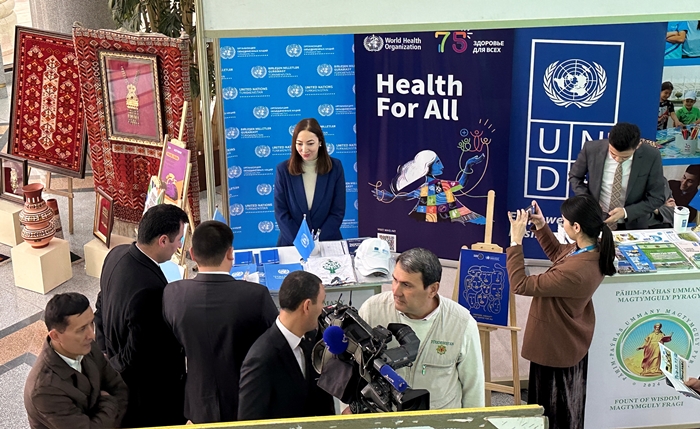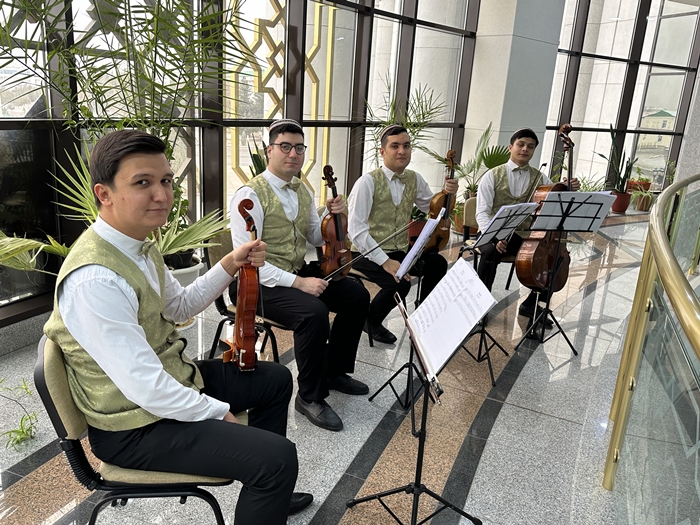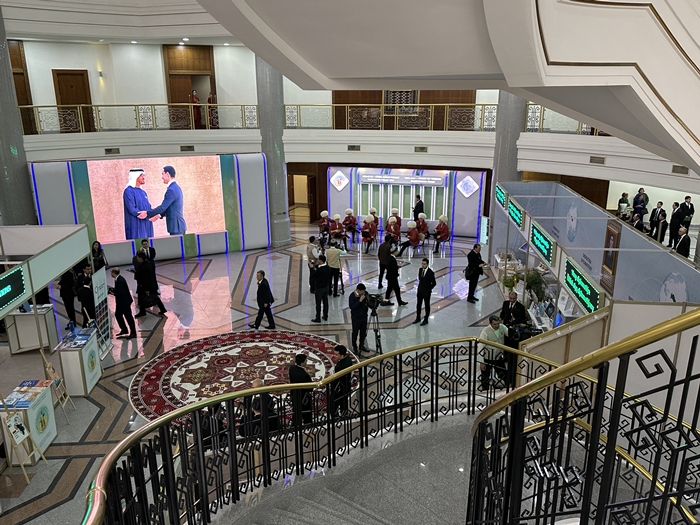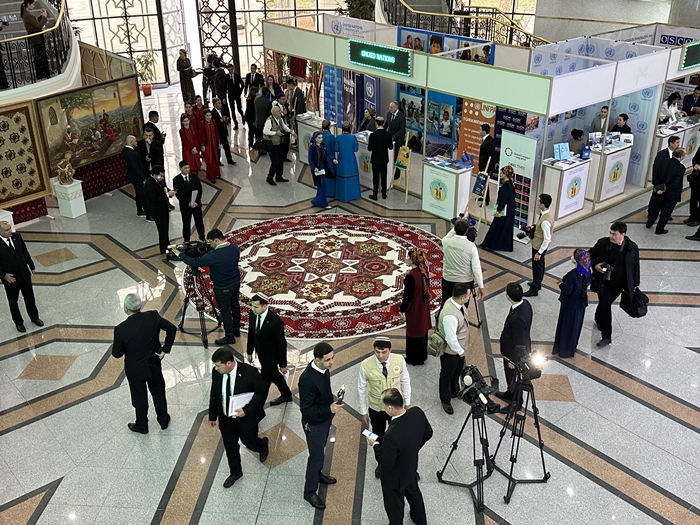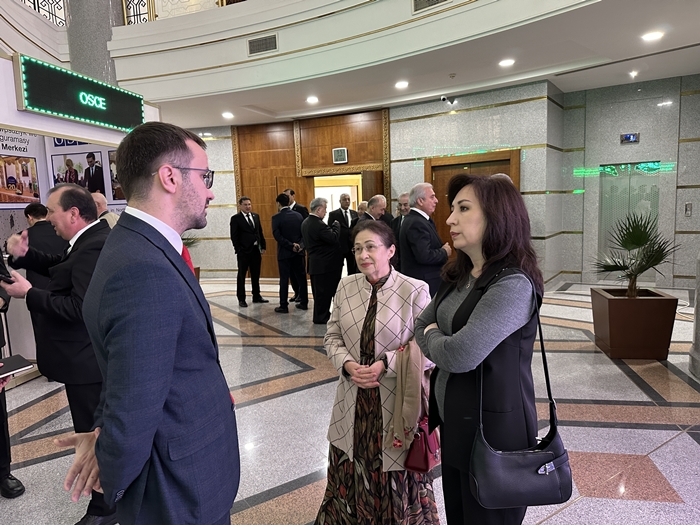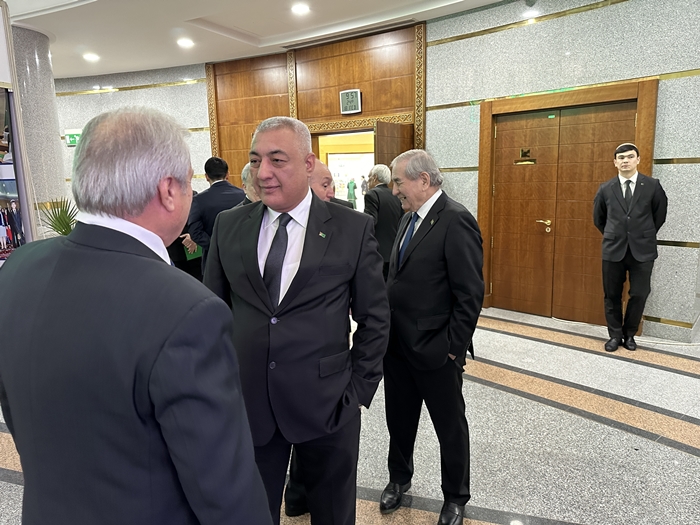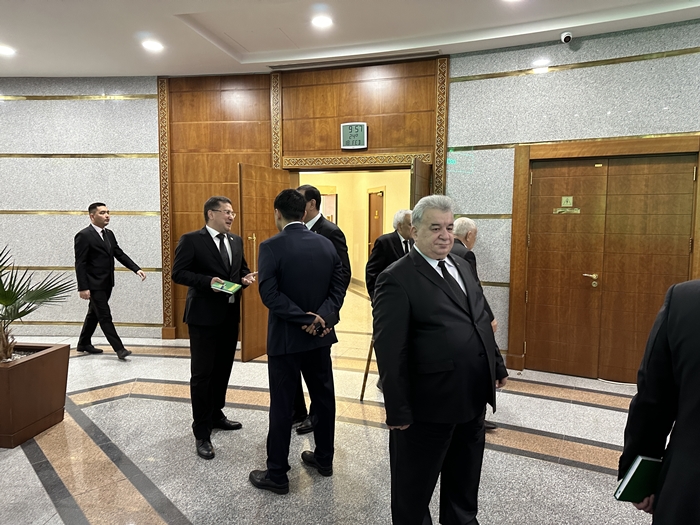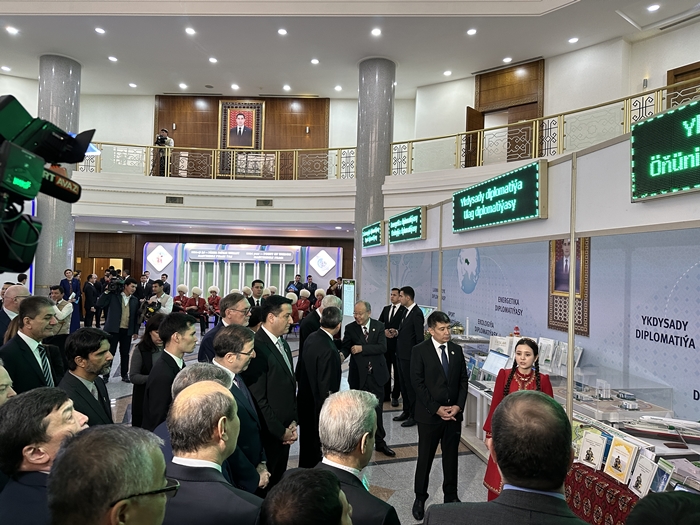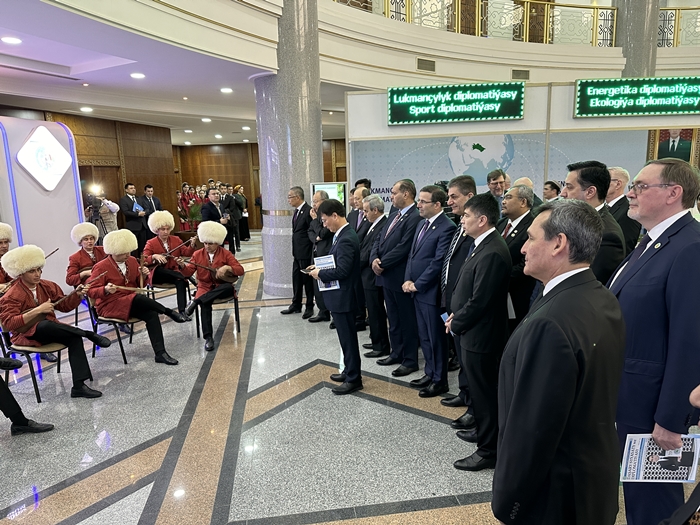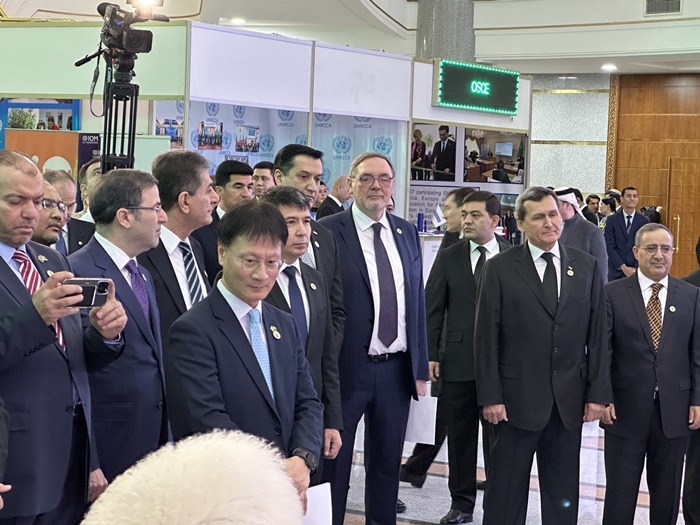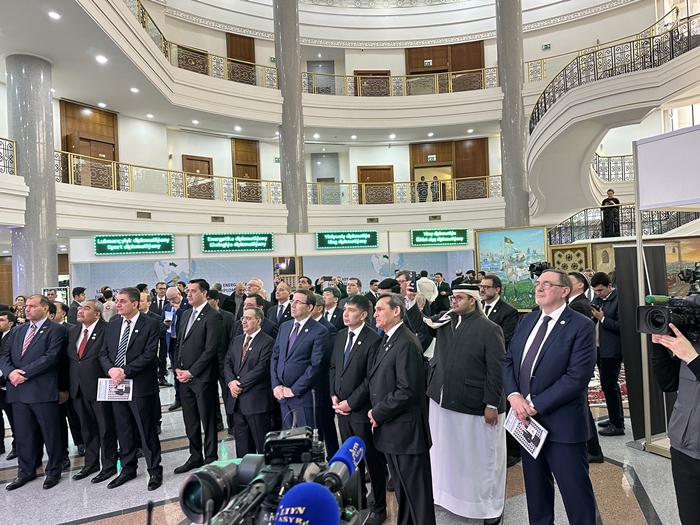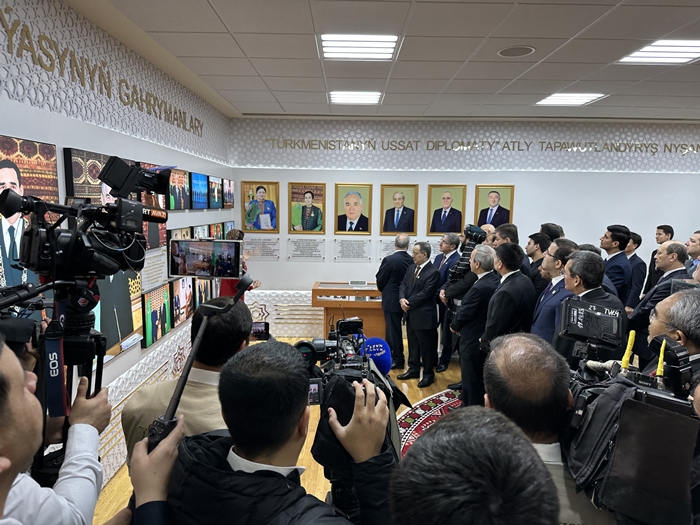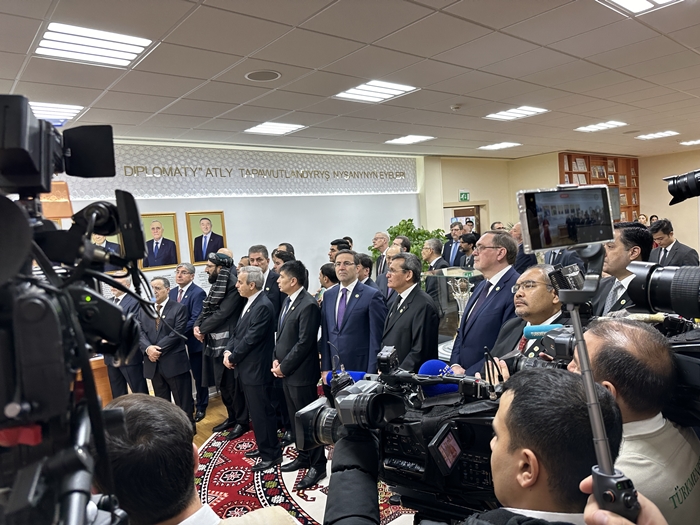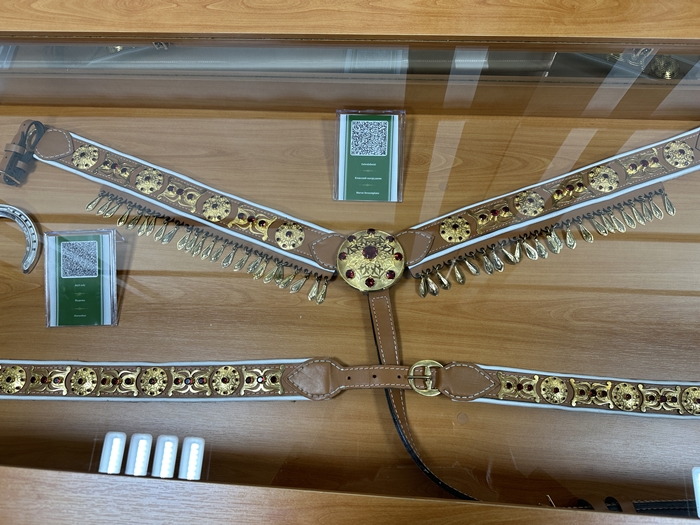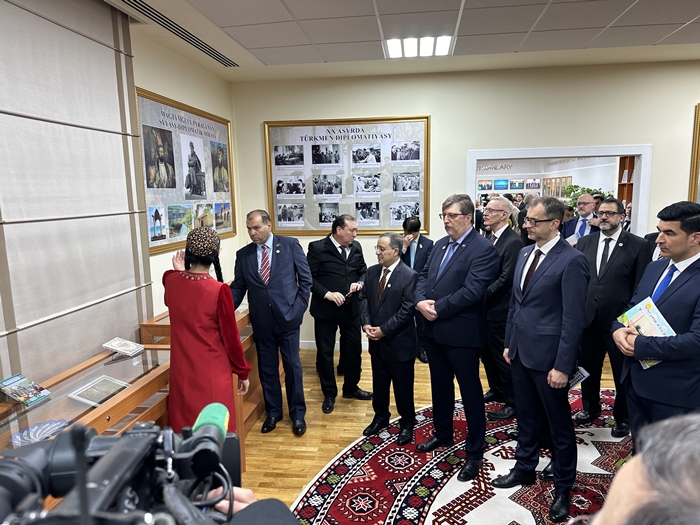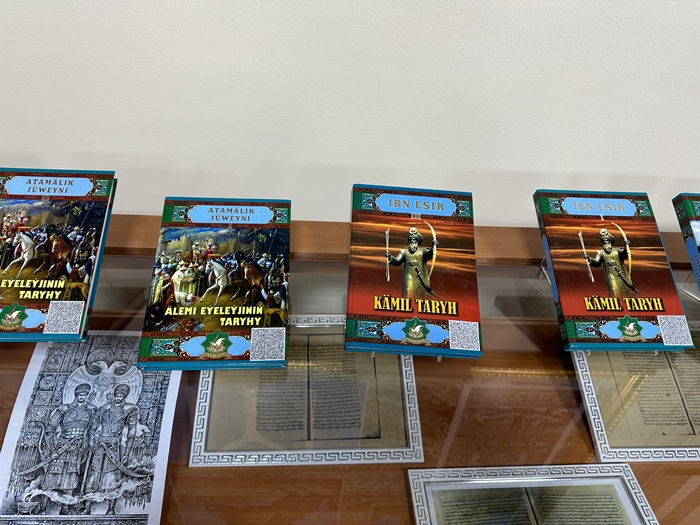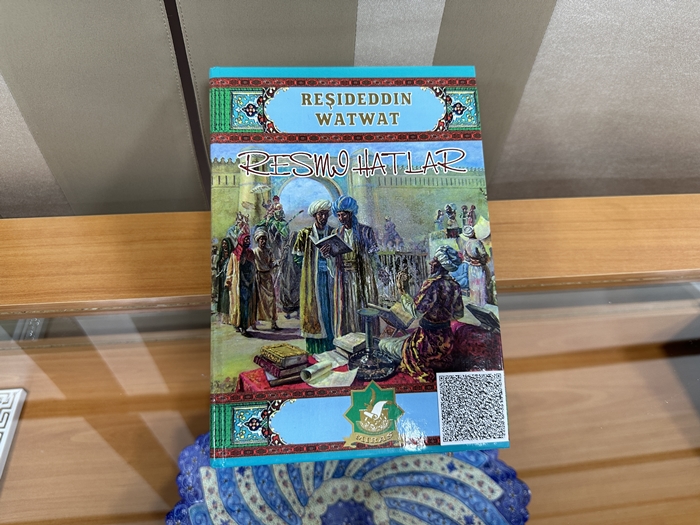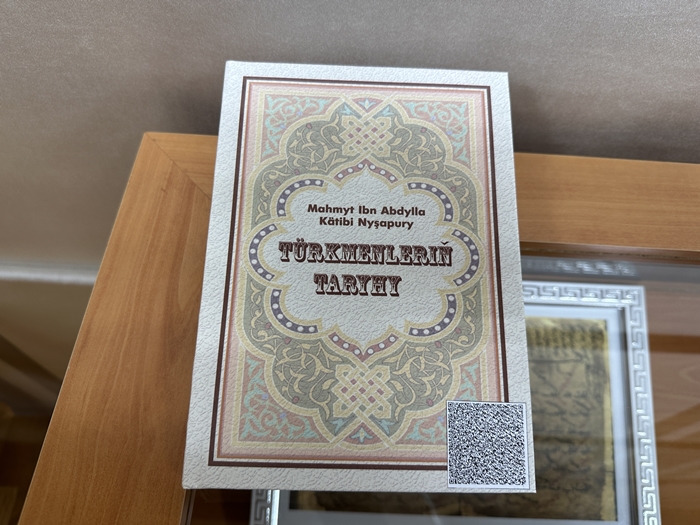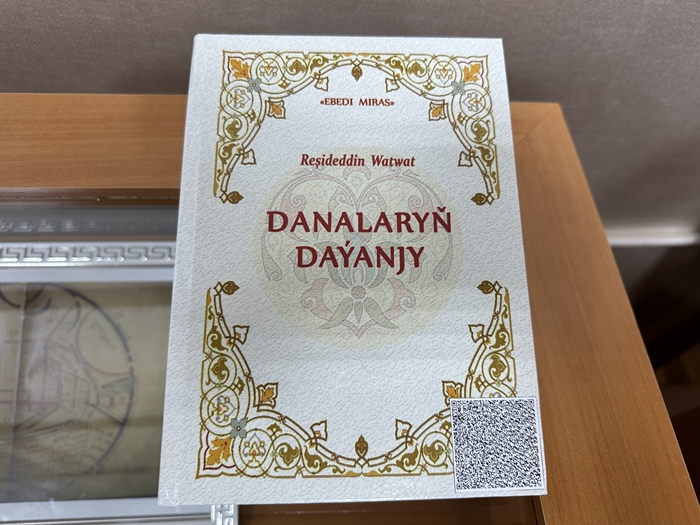nCa Photo Report
Turkmenistan celebrates the Day of Diplomats on 18 February every year. This is not just the tribute the persistent work of the diplomats but also an occasion to the give the foreign partners an insight into the manifold transformations taking place in the diplomatic service of Turkmenistan.
This year, the foreign office of Turkmenistan went the extra mile.
The entrance hall and the side lobbies of the institute of international relations in Ashgabat were a compact but fascinating world.
The UN system, the OSCE and the IOM had their own stalls to acquaint the visitors with their ongoing work in Turkmenistan.
The various aspects of the history of diplomacy in Turkmenistan and its evolving features were attractively displayed.
The unassuming corner , showcasing some of the books recently published by the institute of international relations deserves a special mention.
Among the books was the Turkmen language edition of The Complete History Ibn al-Athir. He was a thirteenth century scholar, historian and biographer whose al-Kāmil fī al-tārīkh (“The Complete History”) encapsulates the history of mankind from Adam to his times. Ibn al-Athir also wrote a history of the atabegs (former Seljuq army officers who founded dynasties) of Mosul called al-Bāhir, which was drawn from his own experience and from that of his father, who held office under the Zangids of Mosul. He was a witness to the expeditions of Saladin (Salahuddin Ayubi).
Another remarkable book on the stand was the History of the World Conqueror by Atâ-Malek Juvayni (1226–1283). Tarīkh-i Jahān-gushā (History of the World Conqueror) is the account of the Mongol Empire. Juvayni was the first-hand witness to the times of Ilkhan Hulagu in the 1256 campaign at the taking of Alamut, where he selected many ‘choice books’ from the famous Alamut library for his own purposes, saving part of its celebrated library. He had also accompanied Hulagu during the sack of Baghdad in 1258, and the next year was appointed governor of Baghdad, Lower Mesopotamia, and Khuzistan.
The Turkmen language edition of The Formal Letters by Rashid al-Din Muhammad Vatvat was also on display. He created a poetic form of writing the official letters, which remained in vogue for very long time. He was affiliated with the Khwarazmian Empire, serving as chief secretary and under the Khwarazmshahs Atsiz (r. 1127/8–1156) and Il-Arslan (r. 1156–1172). Another book by Vtvat was also on display.
Among the other books that capture immediate attention was the Turkmen History by Muhammad ibn ‘Abd Shams al- din-i Nishapuri Katibi. He was a fifteenth poet and scholar, at the courts of Shah Rukh and Baysunqur.
Students of the institute briefed the guests in all the six official languages of the United Nations – Arabic, Chinese, English, French, Russian and Spanish.
